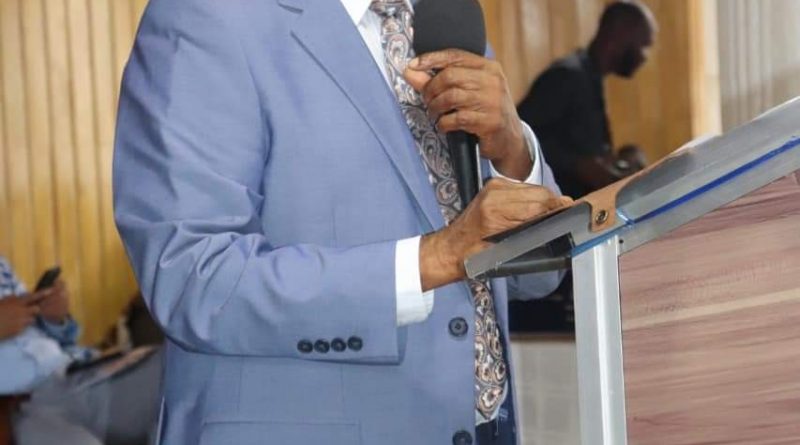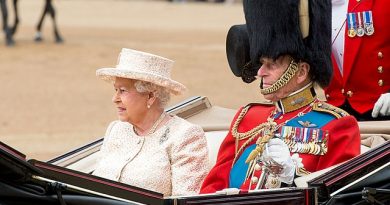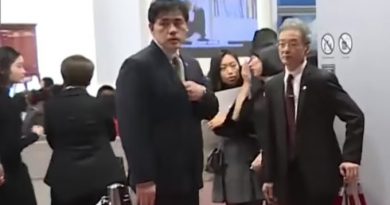Joseph Boakai’s Inauguration Brings Hope for Liberia and Diplomatic Realignment
Andrew Travis
Staff Writer
MONROVIA – On Monday, January 22, Liberia’s new president, Joseph Boakai, took power in a historic inauguration for Liberia at the country’s capitol. Boakai, who served as vice president under former leader Ellen Johnson Sirleaf, is taking over for former president George Weah. Boakai narrowly beat Weah in a runoff in mid-November, capturing 50.9 percent of the vote, according to Reuters.
The inauguration is a milestone for both the country, which has been through back-to-back civil wars in which over 250,000 Liberians were killed, and for the West African region, which has seen six coups since the beginning of 2020. This inauguration is the second peaceful transition of democratically elected power since the country’s civil war ended in 2003. It is also a signal of hope for justice and progress in the country.
Much of the country is optimistic about the new government. Liberian residents who spoke to The Diplomatic Envoy are hopeful that the new government will bring job growth and a better standard of living. Poverty still plagues the country following the civil wars. Data from the African Development Bank shows that the country had a GDP per capita of $538.1 USD in 2021 and ranks 175 out of 189 on the Human Development Index.
In his inaugural speech, President Boakai spoke about reconciliation and announced that his administration will explore the idea of organizing a War Crimes Court to prosecute those who benefited from and profited from the country’s civil wars. In his speech, he said that the goal of this court would be “to provide an opportunity for those who bear the greatest responsibility for war crimes and crimes against humanity to account for their actions in court,” Front Page Africa reports.
Setting up a war crimes court may prove challenging for the new president, however. Former President Weah never followed through on his promise to the United Nations general assembly to set up a wartime court, Human Rights Watch reports. Front Page Africa continues that Mr. Weah faced internal political pressure from influential politicians in Liberia who did not want a court to be set up lest they be prosecuted for their actions in the civil wars.
Corruption was a significant issue for Mr. Weah. In 2022, VOA reports that the U.S. Treasury sanctioned three of his top officials for corruption, including his chief of staff. These shortcomings may have played a role in his loss of the presidential position.
President Boakai is seen by his supporters as a figurehead and experienced politician who has what it takes to get Liberia back on track toward growth, reconciliation, and reconstruction. At the same time, the opposition sees him as too old to run a country, as by the end of his six-year term, he will be 85 years old.
After being sworn in, President Boakai’s inaugural speech was abruptly cut short after he fainted from heat exhaustion in the early afternoon humidity and heat. He was taken away, but his office later announced that he was “doing perfectly fine” and that he was “normal, and he’s doing well.” He resumed official duties soon after and later met with the U.S. delegation to the inauguration led by U.S. Ambassador to the UN, Linda Thomas Greenfield. Greenfield spoke to Seton Hall students at the World Leaders Forum in April 2022.
At her meeting with President Boakai, Greenfield reinforced the United States’ dedication to deepening ties with Liberia and spoke about the country’s role as a leader of democracy in the region.
However, Boakai, in his inaugural speech, seemed disillusioned with Liberia’s relationship with the U.S. On the country’s relationship with the U.S., he stated that “…it is a bit discomforting to be found debating about how we, as a country, are still struggling to come to terms with the extent to which we think the relationship might benefit us.”
The new government under Boakai seems to be moving toward regaining a close relationship with China, which had strained under Mr. Weah’s administration. Liberia was one of two African nations to condemn China for its human rights abuses in Xinjiang at the United Nations in 2021. These diplomatic actions led to the suspension of many infrastructure projects planned by the Chinese.
While Mr. Weah had been fostering closer relations with the U.S., Boakai made it clear in his inaugural speech that the country would seek mutually beneficial relations with both China and the U.S. while not downplaying the country’s role on the world’s stage, The Liberian Observer reported.
“…We will strive for Liberia to rise and take its rightful place in the world as a leader in global affairs, maintaining its traditional liberal and democratic ideals at home while fostering international cooperation driven by development diplomacy focused on a repurposed national development agenda aimed at giving our people better livelihoods,” said Boakai.
President Boakai’s presidency marks a shift in foreign policy and diplomatic relations for a country that stands out as a beacon of peace in a region marked by recent coups or unrest. Whether his experience and influence will prove enough to address the glaring issues that Liberia continues to struggle with more than 20 years removed from civil war remains to be seen.
Image courtesy of Joseph N. Boakai, 2023 Campaign



